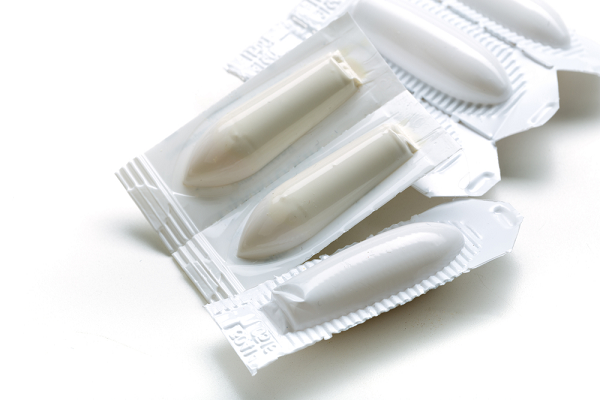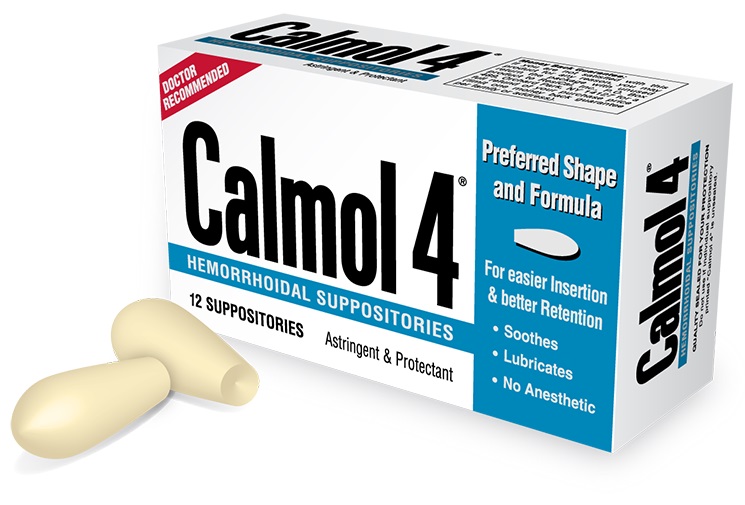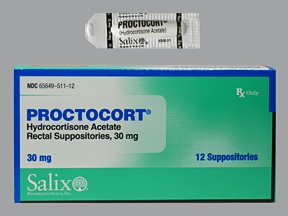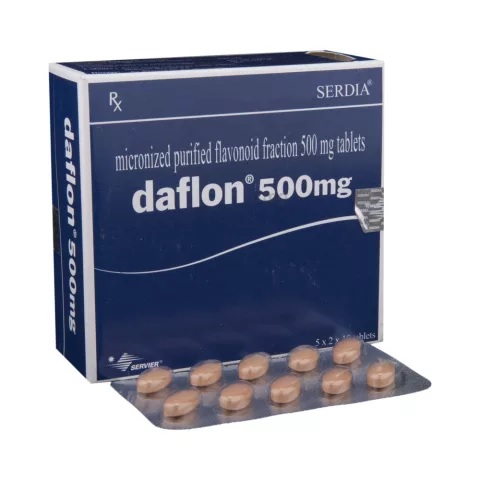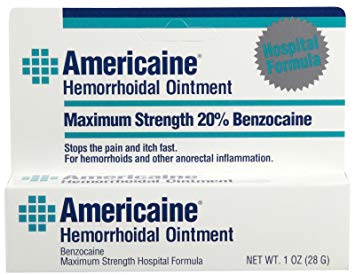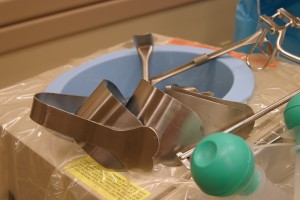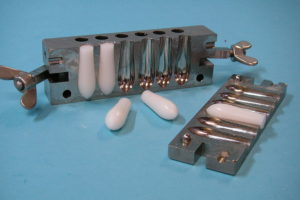It hurts, doesn’t it?
You want to treat that hemorrhoid, and you’d want to treat it as soon as you can before it results in further complications.
Then you may be considering modern medication, a common choice because of their evidence-based results.
Though it’s best to consult a healthcare professional, some of us prefer doing a little bit of research and getting the medication ourselves. Others may want to try different hemorrhoid medications because their previous medication didn’t work.
If you’re wondering what medication you should get, we’ll be going through the top 19 common hemorrhoid medications you may see from doctors’ prescriptions and a few quick measures to ensure you use them effectively.
There are generally 3 broad categories of hemorrhoid medications you’ll encounter: Suppositories, Oral and Topical.
1. Hemorrhoid Suppositories
Suppositories are small objects that you insert directly into your rectum. They will melt inside and directly deliver the active ingredient into the hemorrhoid.
As invasive as it sounds, the process is a little uncomfortable at the start and its technicality makes it prone to mistakes.
So you need to take some measures to ensure the suppository gets delivered effectively. These measures below will generally be applicable to all suppositories.
Steps to follow
- Empty your bowel and bladder just before using the suppository. You don’t want the entire suppository to be excreted later!
- Clean the area with mild soap and water, rinse well, and dry then apply the product on the rectum.
- Unwrap the suppository. Lie on your left side with the right knee bent. Carefully push the suppository (pointed side first) just inside the anus with your finger. Try not to push more than an inch or two inside the anus. Do this quickly before the suppository melts in your hands.
- Once inserted, lay there for a while. 10 minutes should be sufficient for the suppository to melt and deliver the medication to the hemorrhoid.
- If the suppository is too soft to insert, place it in cold water or refrigerate it for 30 minutes before removing the wrapper.
These are the common suppositories you can consider.
1.1. Calmol 4 Suppository
It can be used to temporarily relieve burning, pain, and itching caused by hemorrhoids. It has ingredients such as cocoa butter, starch, or zinc oxide that form a protective barrier to prevent too much irritating contact with stool. This barrier helps protect inflamed, irritated skin and helps make bowel movements less painful.
This medication does not have any troublesome side effects if taken as directed by the doctor. However, it is not recommended for hemorrhoid bleeding or if the rectal area is raw and irritated.
1.2. Anucort-HC Suppository, Rectal
This is a hydrocortisone product and mainly used as a steroid to reduce inflammation in the body. It can be used to treat hemorrhoids by reducing anal/rectal swelling, itching, and pain induced by hemorrhoids.
Besides treating hemorrhoids, it can be used with other medications to treat intestinal problems like ulcerative colitis of the rectum and other rectal inflammatory conditions.
This medication may cause slight burning feeling for some users as it fights the inflammatory response from your body. People with high blood pressure, congestive heart failure, fever, infection or a history of tuberculosis should first consult a doctor before using it.
1.3. Analpram-HC
This medication is widely used to treat some of the problems common to hemorrhoids such as inflammation, itching, redness of the affected area and anal fissures.
What makes Analpram different is it contains an anesthetic called pramoxine that numbs the affected area to reduce pain. It also contains hydrocortisone which is a corticosteroid that reduces itching, swelling, and redness of the affected area. This suppository can be used to treat both internal and external hemorrhoids.
One possible side effect is the color change around the anus since it affects the blood flow around the area, which is generally fine as long as it doesn’t persist. Other side effects include redness and irritation but ensure to consult your doctor if you notice the persistence of these side effects.
1.4. Proctosol-HC suppository
Proctosol-HC contains hydrocortisone steroid that generally reduces inflammation in the body. It is used to treat itching or swelling caused by hemorrhoids or other inflammatory conditions in the rectum or anus. It can be applied to hemorrhoids as a suppository, cream or ointment and is mainly used with other medications to treat ulcerative colitis and proctitis. If not used as directed by the doctor, it results in skin redness as a major side effect.
People with congestive heart failure, history of tuberculosis or stomach ulcers should first consult a doctor or pharmacist before use.
For best results, use only the applicator provided with the medication. Otherwise, follow the directions provided with your rectal cream.
1.5. Anu-Med Suppositories
Anu-Med is used to treat pain, itching, burning, and swelling from hemorrhoids. It contains phenylephrine, which belongs to a group of drugs known as sympathomimetic amines, which works by narrowing the blood vessels around the affected area. In doing so, it reduces the swelling and gets rid of the discomfort.
It can be administered to treat hemorrhoids as a suppository. If you use Phenylephrine HCl as directed, there are no side effects but if the rectal tissue is raw, it may result in rectal bleeding. If bleeding occurs or persists, seek medical advice.
1.6. Cortifoam Suppositories
Hydrocortisone Acetate Foam is often used to treat ulcerative colitis of the rectum, which is an intestinal problem. It can also relieve rectal pain, diarrhea and bloody stool caused by inflammation.
It belongs to the corticosteroid class of drugs and works well by reducing inflammation in the rectum due to hemorrhoids.
It should be inserted into the rectum 1 or 2 times a day after thoroughly cleaning the anal area and should be applied for 2 to 3 weeks.
Side effects include burning and redness of the anus. There are also other side effects that may occur, but very rare including mood swings, irritability and anxiety.
But all of these are quite common only when you start using the medicine, and should disappear after a while. If they persist, you should always consult your doctor.
1.7. Rectasol-HC Suppositories
Due to the active compound hydrocortisone, Rectasol -HC is commonly used as a steroid medication to reduce inflammation. It is also used to treat itching or swelling caused by hemorrhoids and other inflammatory conditions of both the rectum/anus and lower intestines including ulcerative colitis, proctitis, etc.
Rectasol-HC can be used as a suppository by inserting it into the rectal area after your bowel movement and properly cleaning the anal area. Using Rectasol -HC may have some side effects including shortness of breath with mild exertion.
Ensure to call a doctor if you have any side effects.
People with congestive heart failure, a history of tuberculosis and high blood pressure should first seek medical attention before using this medication.
1.8. Procto-Kit 1% Suppository
It contains hydrocortisone mainly used as a steroid medicine to reduce inflammation in the body. Procto-Kit 1% can be used to treat itching or swelling induced by hemorrhoids or other inflammatory conditions in the rectal area.
It can be applied as a suppository that is inserted into the rectal area but ensure to first empty your bowel and clean the anal area before use.
Using procto-Kit 1% may have some side effects including shortness of breath but call a doctor if you have any side effects.
When used with other medicines, Procto-Kit 1% can help to treat ulcerative colitis, proctitis and other inflammatory conditions of the lower intestines and rectal area. Also, people with stomach ulcer, myasthenia gravis, should first consult a doctor before using procto-Kit 1%.
2. Oral Medications
These medications are to be taken through the mouth. They are more convenient than suppositories, but their effectiveness may take a longer while to work. This is because the medication needs to travel a much longer distance from your gut all the way to your rectum in order to take effect.
Healthcare professionals may sometimes prescribe oral medications in combination with suppositories to heighten the chances of success. Here are the common oral hemorrhoid medications you can try.
2.1. Hemovel
These oral tablets are discreet and easy to use, eliminating trips to the bathroom to apply messy ointments or suppositories.
Hemovel is an OTC (over the counter) treatment that helps to reduce the duration and severity of hemorrhoids and relieves hemorrhoid symptoms, such as pain, edema (swelling) and bleeding. Its active ingredient, diosmin, has anti-inflammatory and venotonic properties that help to reduce the duration and severity of hemorrhoids.
However, side effects may include abdominal pain if taken in excessive dosage. There’s a pill reminder included in every box of Hemovel. If you forget to take a tablet, just take it as soon as you remember. Do not take a double dose to make up for the forgotten tablet.
2.2. Diosmin
Diosmin is a plant chemical found mainly in citrus fruits and used to make medicine used for treating various disorders of blood vessels including hemorrhoids, varicose veins, poor circulation in the legs, and bleeding in the eyes or gums (hemorrhage).
It is often combined with another plant chemical called hesperidin, which work in synergy in treat hemorrhoids more effectively.
Diosmin can help treat hemorrhoids and pain by reducing swelling (inflammation), and restoring normal vein function. It should be taken by mouth and as prescribed by the doctor. It is safe for most people when used short-term for up to 6 months but can cause some side effects including abdominal pain when used for a long period.
2.3. Daflon 500mg
It is mainly used to treat acute and recurring hemorrhoids. Daflon 500 mg, has been known to restrain lysosome enzymes and interfere with enzymes involved in the flow of arachidonic acid, thus reducing inflammation.
According to a study performed on 100 patients suffering from hemorrhoidal diseases via proctoscopy, Daflon 500mg treatment of 7 days helped to reduce the frequency and intensity of hemorrhoid problems.
It claims to help prevent recurrence in future.
The dosage used in the study was 6 tablets for 4 days, followed by 4 tablets for 3 days. But you should follow a dosage prescribed by your doctor who has diagnosed your condition.
3. Topical Medications
Topcial medications are moldable substances that you apply with your fingers or hands directly onto the affected place. They can be in the form of creams, ointments and lotions.
This form of medication is easier to apply than suppositories, and may work quicker than oral medications since it directly delivers the medication to the hemorrhoid. But it’s only applicable if your hemorrhoid is within your finger’s reach.
3.1. Caladryl Lotion
Caladryl lotion is mainly used to treat pain or itching caused by insect bites, burns or skin irritation caused by contact with poison ivy. With hemorrhoids, it can be used to treat pain by interfering with pain signals sent from the nerves to the brain.
Steps to follow
- Use exactly as directed on the label, or as prescribed by your doctor.
- Apply 3-5 times daily or after every bowel movement.
- Pramoxine hemorrhoid cream, lotion, foam, or medicated wipe may be used on the rectum after each bowel movement to treat hemorrhoid pain and itching.
- Wash your hands before and after applying Caladryl. Wash affected area with warm water and a mild soap.
A common side effect experience is its stinging effect which is generally normal. Don’t use Caladryl if you are allergic to pramoxine. Seek doctor’s advice.
3.2. Recticare Cream
Recticare is a fast acting topical anesthetic that offers relief from pain, burning, and itching caused by hemorrhoids.
It contains 5% lidocaine, a local anesthetic that numbs the affected area, providing a fast relief from pain and discomfort.
Using Recticare Cream may however result in some side effects mainly burning and redness where applied. This is normal and should disappear on its own. Seek medical help if side effects persist.
3.3. Lidocaine Topical
Lidocaine Topical is mostly used to treat anal fissures, itching and other anal problems like hemorrhoids. It belongs to a class of drugs known as local anesthetics that help to relieve burning and sharp pain in the rectum area.
This medicine should only be applied to healthy skin not affected or with no wounds. You should apply the prescribed number of times and always wash your hands after each application.
Lidocaine may cause some unwanted side effects such as itching, irritation, reddening of the skin, fast heartbeat, and joint pain, swelling of the eyelids, face, hands, feet or lips. Some of these side effects might not occur, but if they do, it is always best to inform your doctor.
3.4. Proctofoam HC Foam
Proctofoam HC Foam can be used to treat anal problems such as fissures. It contains an anesthetic called pramoxine that works temporarily in numbing the affected area around the rectum and anus when treating hemorrhoids.
It also contains hydrocortisone, a corticosteroid that works great in reducing the swelling, itching, and redness of the anal area.
It is usually applied 3-4 times a day or after each bowel movement or as directed by the doctor.
While using Proctofoam HC Foam does not have serious side effects, it may result in redness and burning in the rectal area. Therefore, it is important to consult your doctor or pharmacist if these side effects persist for a long period of time.
3.5. Americaine Cream
This is a Benzocaine cream specifically developed to reduce soreness, irritation, and anorectal swelling associated with hemorrhoids.
The benzocaine is an anesthetic with numbing properties which provides relief from irritation if applied on the affected area. American consists of 20% benzocaine combined with polyethylene glycol 300 and polyethylene glycol 3350 which allows to calm localized discomfort and ache from the hemorrhoidal areas.
However, it should not be used by kids below 12 years without first seeking medical advice.
3.7. Nupercainal
Nupercainal is commonly applied to the skin when treating pain and itching from insect bites, sunburn or other irritations. It can also be used to relieve rectal pain and itching from hemorrhoids because it contains an anesthetic called dibucaine that numbs pain. Dibucaine is usually applied to the affected area 3 or 4 times daily. You can follow the label directions about how much medicine to use and how often or follow directions by the physician.
Using nupercainal may result in some side effects like headache. It is recommended not take it by mouth.
Nupercainal is for external use only on the skin. Do not use this medicine on open wounds or on sunburned, windburned, dry, chapped, or irritated skin. Also, persons with asthma, sulfite allergy or pregnant women should first seek medical attention before using the medication.
3.8. Hemorid Rectal
Hemorid can be used on the rectum to relieve hemorrhoid itching, burning, irritation, and swelling. It is also a decongestant that shrinks dilated blood vessels in hemorrhoids making them less painful.
Do not place the cream, gel, or ointment inside your rectum.
These forms of phenylephrine rectal are for use only on the area around and just outside of your rectum.
Using Hemorid has some side effects mainly rectal bleeding and you should call a doctor as soon as you experience them.
People with heart disease, high blood pressure, enlarged prostate or urination problems should also first seek medical advice before using Hemorid rectal.
3.9. Lidozol
This anesthetic cream is mainly recommended for treatment of minor burns, pruritic eczemas and insect bites. It can also be used to treat pain and soreness caused by haemorrhoids and anal fissures.
Lodozol cream can be applied directly on the hemorrhoids around 3-4 times a day after bowel movement for relief.
However, using Lidozol may result in some side effects mainly irritation. If it persists, you should discontinue its usage and seek medical advice.
Pregnant mothers or breastfeeding women should also first seek medical help before using Lidozol cream.
Are Hemorrhoid Medications the Best Solution?
There are several medical treatment options for hemorrhoids as discussed; they can be administered as suppositories that are inserted into the rectum, as oral medication taken by mouth, or as topical substances applied externally to hemorrhoids.
These medications are good for treating hemorrhoids since they have more clinical evidence. But as with most medications, they all have their own side effects and restrictions, so it’s best to consult your healthcare professional on their usage.
Thus, many of us consider using natural remedies for hemorrhoids as they tend to have less side effects and take a more holistic approach.
But as we try to treat our hemorrhoids, keep in mind that it all started from exerting too pressure on our rectum. We need to adopt a healthier and more active lifestyle to ensure faster recovery. Be sure to take your vegetables and keep your exercises going.
What medications have you tried? Have they worked for you or did they fail? We’d like to hear you in the comments!
